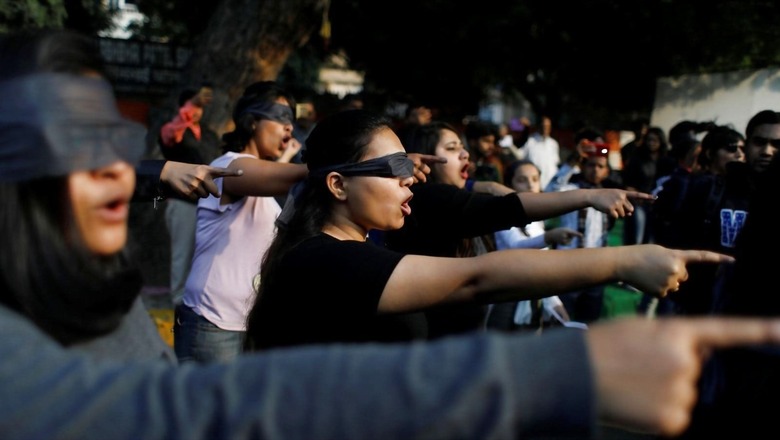
views
In its opposition to the PILs related to “marital rape,” the Centre told the Delhi High Court that, among other concerns, misuse of Section 498 of the IPC related to dowry harassment and the lack of a mechanism to verify when consent is withdrawn by the wife are reasons why India should proceed with caution and not blindly follow other countries on the issue. This has been communicated to the court in writing, the Times of India has reported.
“Various other countries, mostly Western, have criminalised marital rape but it does not necessarily mean India should also follow them blindly. This country has its own unique problems due to various factors like literacy, lack of financial empowerment of a majority of females, mindset of society, vast diversity, poverty, etc and these should be considered carefully before criminalising marital rape,” the government submitted earlier this month, according to the report.
The Centre stated in its submission that there is no definition of marital rape in any statute or law. While Section 375 of the IPC defines rape, defining marital rape would necessitate a broad-based consensus in society, and that what constitutes marital rape and what does not constitute marital rape must be precisely defined before a decision on criminalization is made.
On the evidence in such cases, the government has argued that, for the time being, the prosecutrix’s testimony is sufficient to convict the accused under Section 376 of the IPC. The medical evidence shows injuries, marks, or coloration on the body, particularly on the back, chest, or private parts, which can certainly provide ample corroboration, the Centre said. However, in the case of allegations of marital rape, this corroborative evidence may be rendered ineffective, it said, adding that it will be difficult to determine when the married woman withdrew her consent. The cost of circumstantial and corroborative evidence will be futile in the case of marital rape, according to the Centre.
The Centre has yet to argue in court, which has repeatedly asked when it can expect to hear its case, including on Friday. Last week, Solicitor General Tushar Mehta told the Delhi High Court that the Centre was considering a “constructive approach” to the issue and had solicited suggestions from various stakeholders and authorities on comprehensive criminal law amendments. He had stated that criminalising marital rape involves “family issues” as well as a woman’s dignity and cannot be viewed from a “microscopic angle,” and he had requested more time. However, the bench made it clear that it would continue to hear from other stakeholders until the Centre opened its arguments.
The government has maintained in its written submission that marital rape is sufficiently covered under “sexual abuse” under the definition of domestic violence. The Act defines the offence as well as the appropriate remedies. Furthermore, any act of unnatural sex between a man and his wife is punishable under Section 377 of the IPC, according to the submission.
Concerns about “gross misuse of the offence of marital rape by the wife cannot be ruled out,” according to the Centre, citing the misuse of Section 498A of the IPC. It has argued that adequate procedural safeguards must be implemented, “which can only be done by the legislature if it seeks to make marital rape an offence.”
It went on to say that “removing exception 2 of Section 375 would make marital rape a cognisable, non-bailable, and non-compoundable offence, and that this would eliminate any possibility of a settlement between the husband and wife, which is permitted under Section 498A of the IPC.”
The Centre has also argued that a court “cannot usurp the power of the legislature,” and that repealing exception 2 of Section 375 IPC “would be akin to legislating a separate offence, which can be done only by the legislature in accordance with the doctrine of separation of powers prescribed in the Indian Constitution.”
Read all the Latest India News here




















Comments
0 comment